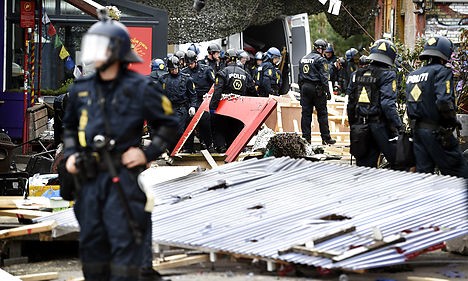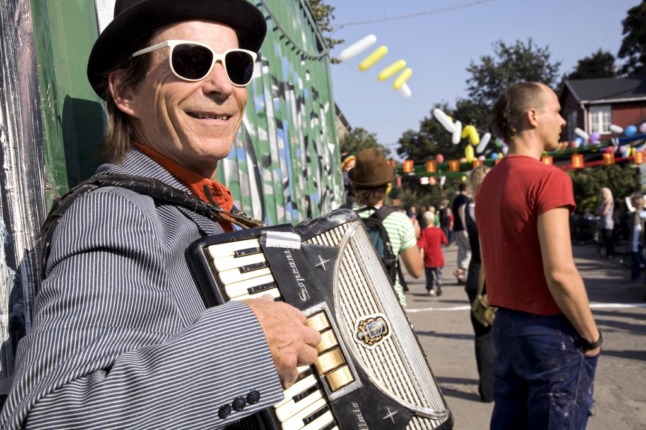CANNABIS
Danish police issue GoPro video of hash market raid
Police in Copenhagen have released video footage of their huge raid on Pusher Street, the open cannabis market in Christiania, the city's hippy enclave.
Published: 4 August 2016 18:18 CEST

Liselotte Sabroe/Scanpix
The video, shot on GoPro cameras worn by officers, shows young men shouting and pelting the heavily armed riot police with stones. Police also released photographs of 16 young men who are shown in the coverage.
“It Is totally unacceptable to attack and injure police officers who are in the process of careful work to get the violent and organized cannabis market in Copenhagen into order,” police commissioner Steffen Thaaning Steffensen said in a press release.
According to the release several policemen were injured by the stones, one of whom was on sick leave for a month.
“As well as paving stones, beer bottles, liquor bottles, lighters, metal pipes, rocks, chains, smoke bombs, and even a fold-up stool were thrown,” the statement continued. Some youth also shot fireworks at the advancing officers.
The raid on June 17, which has since been followed by two further raids, is controversial in Copenhagen, where a majority support legalising cannabis.
The raid saw officers tear down 37 cannabis stalls and arrest 18 people. Five kilos of hash, four kilos of marijuana and over 1,000 pre-rolled joints were confiscated. Police also seized 42,000 kroner and found a knife, illegal pepper spray and a large quantity of fireworks.
After each raid, the market has returned to operation almost immediately.
Cannabis has been sold in Christiania ever since radical Danes squatted a former military barracks in 1971 in an attempt to create a 'free town', independent of state authority. Sales are estimated to total one billion kroner a year, money that legalization proponents argue currently ends up in the hands of organized criminals.
Peter Kofod Poulsen from the Danish People’s Party congratulated police on the initiative of using GoPro cameras.
“We believe it is the right way to get this kind of crime under control, and make it easier to make people accountable for the crimes they commit,” he said.
Url copied to clipboard!


 Please whitelist us to continue reading.
Please whitelist us to continue reading.